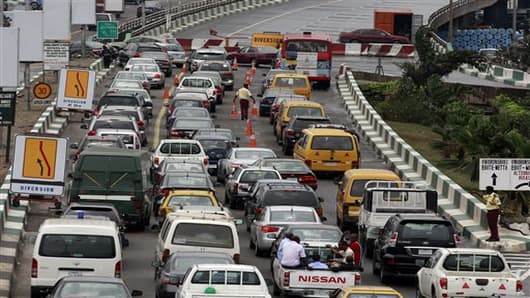Sub-Saharan Africa has typically been classified as a natural-resource play for foreign investors, but its real potential rests increasingly with the region's burgeoning middle class, top executives told CNBC.
"You've got to look at the African middle classes growing. The cities are growing. People need goods and services," Davinder Sikand, partner at private equity firm Abraaj Group told CNBC's "Access: Middle East".
His comments come as management consultancy McKinsey & Company forecast the region's consumer sector would grow by $410 billion by 2020, "representing the continent's largest business opportunity".
The World Bank, meanwhile, expected foreign direct investment into Sub-Saharan Africa to reach $54 billion by 2015 - up from $37.7 billion last year, and just $7 billion in 2000.
International savings group and insurer Old Mutual already gets 75 percent of its earnings from South Africa, but the company's Strategy Director David Marshall said this was not enough exposure, and its "top priority" was to expand across Sub-Saharan Africa.
He added that Africa's largest oil exporter, Nigeria, was most likely to outclass regional contenders in the future. "It will come as no surprise that Nigeria is the one to watch. It's a question of when, not if, Nigeria's economy rivals or surpasses South Africa," he told CNBC. "The other market that's key is Kenya, and we're also very serious and focused around Ghana."
(Read More: Warning: 'Prepare' for Commodity Supercycle End)
Sikand had a similar view. The Abraaj Group is already present in Nigeria, Kenya, South Africa and Ghana and is finalizing another deal in the Ivory Coast, where civil war has left the country in tatters.
"In Nigeria we are very active in financial services, oil and gas, and fast moving consumer goods," he said. "If an economy is growing at five percent, your cities are growing at double that, and the good companies are growing at 20 percent."
In a recently updated outlook, the IMF forecast economic growth in Sub-Saharan Africa to reach 5.4 percent this year and 5.7 percent in 2014 - a growth figure second only to Emerging Asia.
But the region is vulnerable to price shocks on international markets. Commodities-driven growth spurts in this part of the world have often collapsed into violence and instability, or been mismanaged through poor governance.
"While there is no clear answer to whether or not commodity prices will accommodate growth in the longer term, economic growth as it stands now has not been inclusive," the World Economic Forum Africa Competitiveness Report said in May.
This was "worrisome," it added, as diversification was essential for resource wealth to be evenly distributed to produce sustainable long-term growth.
For Old Mutual's Marshall, however, these weaknesses were often exaggerated. "Those risks and fears are often dramatically overplayed. Having been working in London for the past few years, it's not though that's been without risks," he said.
Potential for Property Investors
In tandem with the broader growth story, interest in developing the continent's property sector is booming.
(Read More: Africa Has Greater Potential Than India: Stanchart)
International real estate company Jones Lang LaSalle (JLL) credited corporate outsourcing and middle class consumerism for the increase in demand.
While Nigeria was still plagued by higher levels of corruption, security deficits and construction quality problems, JLL's EMEA CEO Christian Ulbrich identified Ghana - and specifically its capital Accra - as the top destination in the property space.
"Accra looks very solid, which could be an opportunity even for more long term investors," he told CNBC.
As conservative investors turned to listed vehicles and structured funds, others from more comparable backgrounds were moving in fast, he said. "The ones who are developing are clearly the ones who are coming from similar emerging market environments who have the boldness to start to develop in Africa."
Progress on governance was urgently needed if more capital was to come to Africa through international funds, Ulrich said, but he added that most investors were looking beyond the current turmoil.
International manufacturing would take a long-term view to serve the growing middle class, he said. "That would become a self-fulfilling prophecy. At the end of the day the economy will be more robust and not so dependent on the energy."
This week on "Access: Middle East": Tune in for an "Investing in Africa" special from the sidelines of the World Economic Forum in Cape Town. The episode reveals where investors are putting their money in Sub-Saharan Africa, and how they handle the risks of the region.
(Read More: Middle East and North Africa's Growth to Slow: IMF)


